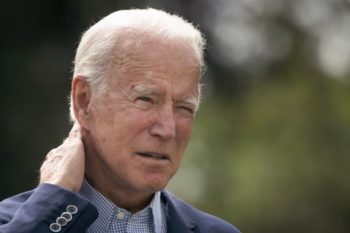
The U.K. government may need to delay until next year the release of a plan on how the country will meet carbon reduction targets for 2030, according to the new climate minister. In his first public comments since his appointment last month, Minister of Climate Change Nick Hurd said Tuesday that he’s reviewing the country’s progress to date and he doesn’t want to release a plan that won’t meet the goal. The fifth carbon-reduction plan had been expected by the end of this year, and the June vote to exit the European Union has complicated environmental policy. –Jessica Shankleman and Chris Martin, Bloomberg, 6 September 2016
The government may delay the release of its new plan to slash UK carbon emissions until next year, Nick Hurd told business leaders last night in his first major speech since being appointed as Climate Change Minister. The news comes after reports emerged suggesting EU ratification could be complicated by calls from Poland’s environment ministry for financial guarantees for investment in coal power plants as a pre-condition for ratifying the deal. Observers fear the move could risk delaying formal implementation of the agreement at EU level by other countries, including the UK. —Business Green, 7 September 2016
A vote for Brexit in tomorrow’s UK referendum on EU membership would mean that the COP21 agreement would have to be rewritten, the executive secretary of the UN Framework Convention on Climate Change said today (22 June) in Brussels. Christiana Figueres, one of the architects of the historic deal struck last December to limit warming to no more than two degrees above pre-industrial levels, said the international pact, “would require recalibration”. It is currently in the process of ratification. –James Crisp, EurActiv, 22 June 2016
Poland is ready to support the EU’s ratification of the Paris and Doha climate agreements if Brussels is willing to back new coal plant construction by issuing free CO2 emission allowances, the Prime Minister’s Office said late Monday. “The Ministry of Environment is starting the procedure of ratifying the international climate change agreements: the Paris Agreement and the Doha Amendment. Ratification will be possible on condition that Poland’s interests in the field of European climate policy are secured,” the Prime Minister’s Office said in a statement. –Adam Easton, Platts, 6 September 2016
President Obama’s announcement Saturday that the United States and China had joined last year’s landmark Paris climate agreement together elicited tepid response from Republicans in Congress who insist the administration has shirked its obligation to submit the deal to the Senate. Instead of threatening to take down the deal through legislation or litigation, Republicans released a few muted statements arguing that the global agreement would falter on its own. Republicans say the agreement gives advantages to major developing countries like China because developed countries by and large have agreed to make deeper cuts. But it is unclear what tools Republican lawmakers plan to use to combat Paris, or whether they’ll even try. “I don’t think anyone’s going to talk about it until they decide to do it, and that will be after the election,” said Myron Ebell of the Competitive Enterprise Institute. —Jean Chemnick, E&E News, 6 September 2016
Like everything else we have been told about that Paris agreement, it is all smoke and mirrors. We would never guess from all the hype, for instance, that China has no intention of halting the rise in its “carbon emissions” at all. On the contrary, while saying it will cut emissions per unit of GDP, it projects that its economic growth will result in a CO2 rise of 50 per cent by 2030. This alone would add up to 30 per cent of the world’s total. India alone, already the world’s third-largest emitter, is planning to build more than 400 coal-fired plants, and anticipates that by 2030 its emissions will actually be three times greater than they are today. It is hard to recall any event in history that has been more absurdly and comprehensively misrepresented by politicians and the media. In reality, the Paris agreement was no more than a vainglorious act of collective wishful thinking, orchestrated to fool the world into thinking that anything of significance had actually been achieved. –Christopher Booker, The Sunday Telegraph, 4 September 2016
What do you do when you show up to an international climate convention knowing that your legislature won’t ratify any sort of binding treaty? If you’re the United States, you water the deal down by removing any hint of enforcement mechanisms to ensure you don’t overstep the bounds of executive power. In working around those congressional restraints, the U.S. completely hollowed out the Paris deal, making it an entirely aspirational affair. None of the goals the Paris deal asks UN member states to set will be enforced in any real way. There’s something else at work here: the desperate need of the Obama Administration to keep up the facade that American foreign policy isn’t a complete disaster. —The American Interest, 6 September 2016
















